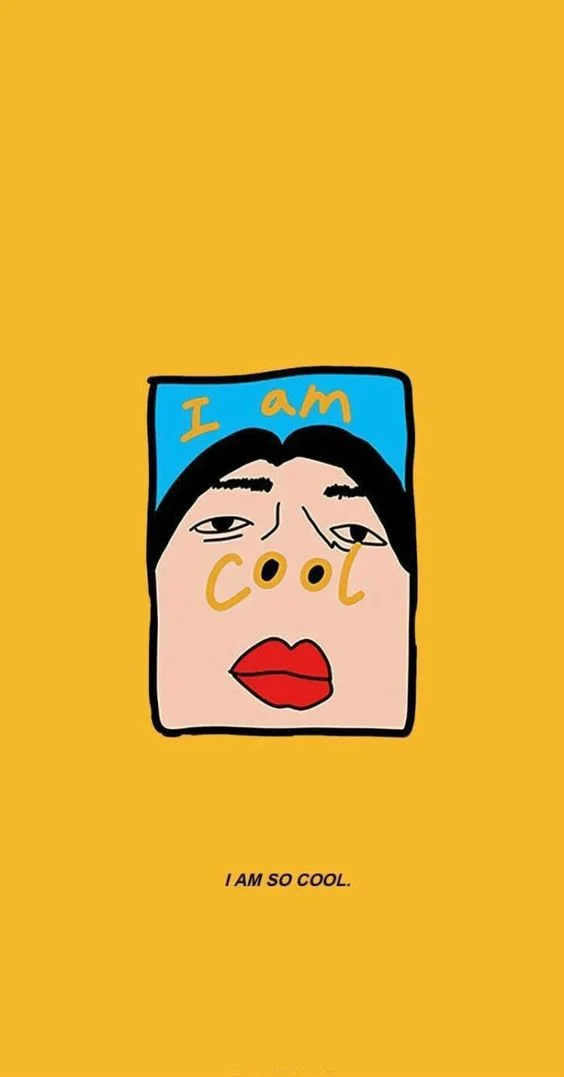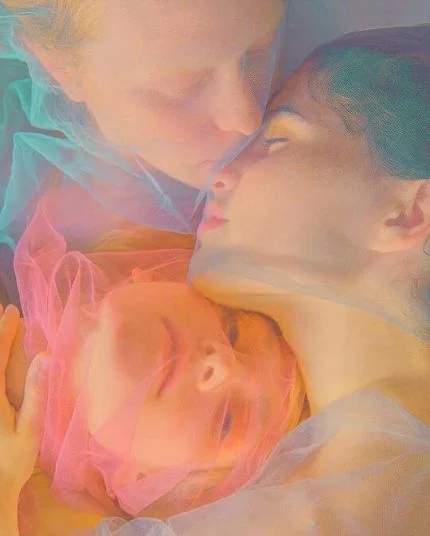hEy COol GiRls! Stop Calling Other Women Boring
Growing up, I think I was pretty normal.
Not to say I didn’t have weird habits, or that there weren’t aspects to my personality that were and still are fairly interesting, but from the outside, I was a normie. I listened to Taylor Swift and Ed Sheeran. I wore Uggs. I watched beauty tutorials on Youtube. I spent an entire summer teaching myself how to French braid. For all intents and purposes, I was just like every other pre-teen that wanted to desperately fit in. My image reflected that of my classmates and the people I surrounded myself with. It’s hard to avoid the mob mentality when you still don’t really know what individuality means.
And this doesn’t just apply to the kids who identified as girls. We all know the Nike Elite socks and slides contagion that infected many-a-middle school boys’ locker room. But because of misogyny’s impossible expectations, it’s only women that are reprimanded and made fun-of for liking popular things.
It wasn’t until I entered my later-teen years that I began looking at my interests, the clothes I wore, and the music I listened to as markers of who I really was. Suddenly, liking the same thing as everyone else became boring, or even worse, basic. The word “basic” became something I felt that I needed to distance myself from. I couldn’t be “like other girls.” I shoved my UGG boots into the back of my closet and swore off pumpkin spice lattes. I denied myself simple things that I enjoyed, and that most people enjoy, because I thought that these little interests or pleasures somehow reflected on my intelligence, my power, my ability to be taken seriously.
Labeling certain things, hobbies, music, coffee drinks, seasons of the year (this one I really find ridiculous) as basic brings with it a negative connotation. Popular things are popular for a reason. UGG boots are popular because they’re comfortable and warm as hell. Fall is a popular season because its cozy and warm and the precursor to winter, its holidays, and its overall sense of magic. I remember thinking wearing a scarf in the fall was “too basic.” Keeping my literal neck warm was something deemed “too mainstream.”
What’s frustrating about the term “basic” is that it is exclusively used to define people who identify as womxn. If we look at interests through a gendered lens, then it suffices to say that football, beer, meat, and trucks are all very popular things associated with cis-men. Yet we don’t look at men who enjoy tailgating and playing pong as “basic.” Women are expected to have niche interests in order to fully flesh out their personalities.
There’s a sense that if a woman has interests that fall into the mainstream, that these somehow devoid her of other defining characteristics. The negativity and superiority that is often accompanied by labeling a woman as basic is a function of a patriarchy that refuses to see women multi-dimensionally. It’s as if it’s not possible for a woman to enjoy cycling and wine while simultaneously having depth to her spirit. (See VICE’s hilariously accurate piece on soft bois for more.)
The idea of “basic” and the fear of being labeled as such really cemented for me when I came to college. Surrounded by hundreds of other women my age, I felt that I needed to work ten times harder to distinguish myself as a “cool” girl. During the first two years of college, I functioned under a pressure of erasing my “basic” interests in place of things that I thought would make me more interesting. My internalized misogyny led me to jude other women based on their Instagram accounts or what they wore to class, as if I was somehow better than them because I didn’t own a popular shirt from Brandy Melville. I spent hours scrolling through social media accounts of women that I thought fit the “cool girl aesthetic” that I was striving to curate for myself, and would analyze the colors, poses, and backgrounds of the images. I went back and deleted all of my previous posts from high school where I was clad in my school’s colors or standing in a group photo for a homecoming dance, and of course, I erased the memory of any lack-luster selfies taken in my childhood bedroom. I started to set my Spotify listening sessions on private whenever I wanted to cry to artists that weren’t “alt” enough, and created playlists of songs that I didn’t even like, but thought that they made me look “cool.”
What I came to realize throughout my past three years of college is that 1) there is absolutely nothing wrong with being “like other girls” and anyone who says “you’re not like the other girls” is misogynistic, and 2) a person is much more than what music they choose to listen to, what footwear they dawn in the winter, or how aesthetically pleasing their Instagram page looks. Personally, I would much prefer spending time and creating friendships with people who support me, who listen to me, who make me laugh, and who are genuinely human beings. Having mutual interests is often helpful in seeking initial connection, but there should never be isolated and insular judgments of a person’s character or depth based on these interests.
The stigmas and assumptions that are associated with a woman’s interests are flat, inaccurate, and depersonalizing. I know so many women who enjoy “basic” things, but have some of the most niche breadths of knowledge on certain topics, and believe it or not, have passions that go beyond lattes and comfy pants. I’ve had the privilege to learn from an amazing woman in GW’s School of Media and Public Affairs in two different classes, and I was even able to serve as her research assistant for a few months. She is an internationally renowned media critic, an associate professor at a highly esteemed institution, a published author, a Harvard graduate, a mother, a wife, and a trivia champion. But she also frequently mentioned her love for Soul Cycle and walked into class in running sneakers and Lulu Lemon leggings. People, women, are multidimensional.
Calling women boring based on superficial aspects that are so inconsequential to the actual substance of a person is a misogynistic practice that is outdated and narrow. Existing in this world as a person who identifies as a woman brings enough pressures, expectations and obstacles. If a woman wants to enjoy a pumpkin spice latte and keep her feet warm, fucking let her.


